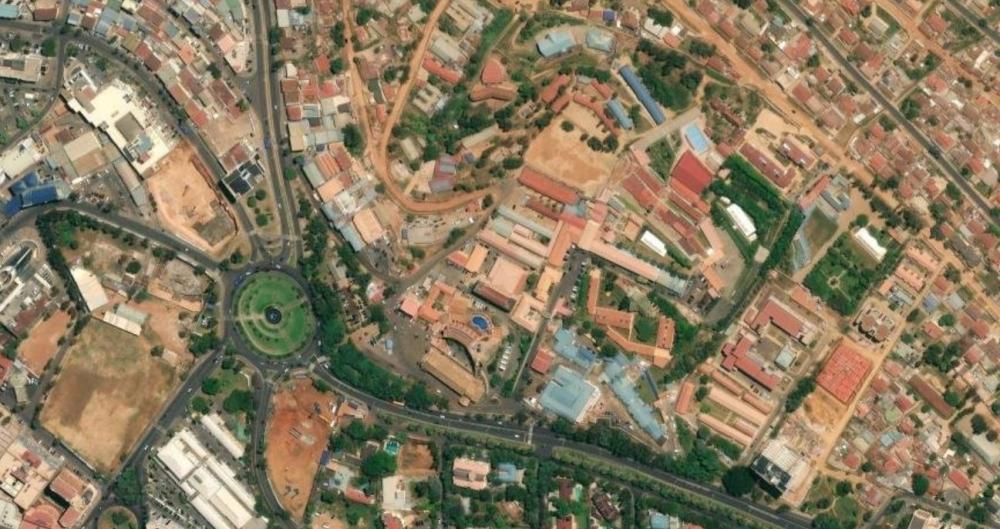Africa-Press – Rwanda. The National Land Authority has announced a major integration of the Financial Management Information System into the existing Land Administration Information System (LAIS), a digital land registry for managing land ownership records, transactions, and land use information that ensures efficiency, transparency, and security tenure.
FMIS, a centralized system for managing public financial resources efficiently.
According to Grace Nishimwe, Director General of the land authority, this initiative seeks to streamline service delivery, enhance compatibility with financial systems, and boost operational efficiency.
“This integration of the Financial Management Information System (FMIS) will guarantee that expropriated lands are automatically registered to the government upon payment, eliminating bureaucratic delays and preventing tax miscalculations on properties no longer owned by private individuals,” she added.
Nishimwe further explained that the integration and upgrade will accommodate the country’s increasing land transaction volumes and evolving digital infrastructure.
“Back in 2017, the National Land Authority processed through LAIS approximately 170,000 land service files annually. Today, the system handles over 800,000 transactions each year, with projections surpassing one million transactions in the near future,” Nishimwe told The New Times.
“This exponential growth of land application files underscores the need for a more robust and efficient system to meet the increasing demand.”
Nishimwe underscored the need for LAIS to remain compatible with other national systems undergoing technological upgrades to ensure seamless service delivery.
Key benefits of LAIS 4.0 integration with FMIS
Enhanced revenue collection, tracking
Once upgraded and integrated, the system will ensure accurate billing, invoicing, and automated revenue collection for land transactions (leases, sales, transfers, mortgages) and minimize revenue leakages and fraud by directly linking land-related payments to government accounts.
Transparency, accountability
LAIS 4.0 version is set to enable real-time tracking of payments and land transactions, reducing delays and increasing performance. It will also facilitate audit trails for financial transactions, and improve financial oversight.
Automation
NLA explains that the system upgrade will automate tax assessments, payments, and reconciliation, reducing manual workload as well as accelerate land transactions by providing instant financial clearance before registration approval.
Better financial planning, budgeting
The upgraded LAIS will help the country to forecast land-related revenues and plan budgets effectively; and facilitate decision-making with real-time financial reports and analytics.
Improved service delivery
LAIS will enable property owners and investors to make online payments, and speed up land registration and transfer processes for individuals and businesses.
Compliance with legal, regulatory frameworks
Once LAIS Version 4.0 gets operational, it will ensure financial transactions adhere to tax laws, land laws, and financial regulations and assist the government authorities in tracking and enforcing land-based revenue policies.
Boosting investment & economic growth
LAIS 4.0 Integration with FMIS and upgrade will enhance investor confidence through secure and transparent land transactions, and encourage banks and financial institutions to engage in land-related financing (mortgages, loans).
Addressing expropriated land registration challenges
The National Land Authority said that a key focus of the integration and upgrade is resolving long-standing challenges in registering expropriated land.
Despite ongoing expropriation for public interest projects, many institutions have failed to complete the necessary steps to register acquired lands under the Government of Rwanda. This has resulted in mismanagement and underutilization of state-owned land.
By 2024, approximately 599,221 land parcels had been registered under government ownership, according to Nishimwe. The government aims to register at least 100,000 additional expropriated land parcels and protected areas by 2029.
Nishimwe explained that to achieve this target, expropriating agencies will collaborate with the land authority to ensure all previously unregistered land acquired for public projects is properly documented.
The upgrade will establish a comprehensive database for state land management and link it with FMIS, enabling the semi-automation of expropriated land registration.
Future plans and impact
The government is intensifying efforts to raise public awareness about updating land information, correcting parcel boundaries, and registering unclaimed lands currently under provisional government ownership.
“The LAIS upgrade represents a major step toward a more efficient, transparent, and technologically advanced land management system in Rwanda,” Nishimwe said.
“By addressing integration challenges, expanding automated services, and ensuring timely land registration, the government aims to enhance service delivery, strengthen land administration, and support sustainable national development.”
For More News And Analysis About Rwanda Follow Africa-Press






